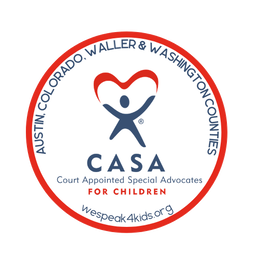JOIN OUR BOARDVisit one of our CASA 101 info sessions to learn more about CASA. If you are ready to jump right in please download the Board of Directors Application and email it to [email protected].
|
Ten Basic Responsibilities of Nonprofit Boards
1. Determine the organization’s mission and purpose. It is the board’s responsibility to create and review a statement of mission and purpose that articulates the organization’s goals, means, and primary constituents served.
2. Select the chief executive. Boards must reach consensus on the chief executive’s responsibilities and undertake a careful search to find the most qualified individual for the position.
3. Provide proper financial oversight. The board must assist in developing the annual budget and ensuring that proper financial controls are in place.
4. Ensure adequate resources. One of the board’s foremost responsibilities is to provide adequate resources for the organization to fulfill its mission.
5. Ensure legal and ethical integrity and maintain accountability. The board is ultimately responsible for ensuring adherence to legal standards and ethical norms.
6. Ensure effective organizational planning. Boards must actively participate in an overall planning process and assist in implementing and monitoring the plan’s goals.
7. Recruit and orient new board members and assess board performance. All boards have a responsibility to articulate prerequisites for candidates, orient new members, and periodically and comprehensively evaluate its own performance.
8. Enhance the organization’s public standing. The board should clearly articulate the organization’s mission, accomplishments, and goals to the public and garner support from the community.
9. Determine, monitor, and strengthen the organization’s programs and services. The board’s responsibility is to determine which programs are consistent with the organization’s mission and to monitor their effectiveness.
10. Support the chief executive and assess his or her performance. The board should ensure that the chief executive has the moral and professional support he or she needs to further the goals of the organization.
Source: www.gailperry.com/resources/ten-basic-responsibilities-of-nonprofit-boards/
2. Select the chief executive. Boards must reach consensus on the chief executive’s responsibilities and undertake a careful search to find the most qualified individual for the position.
3. Provide proper financial oversight. The board must assist in developing the annual budget and ensuring that proper financial controls are in place.
4. Ensure adequate resources. One of the board’s foremost responsibilities is to provide adequate resources for the organization to fulfill its mission.
5. Ensure legal and ethical integrity and maintain accountability. The board is ultimately responsible for ensuring adherence to legal standards and ethical norms.
6. Ensure effective organizational planning. Boards must actively participate in an overall planning process and assist in implementing and monitoring the plan’s goals.
7. Recruit and orient new board members and assess board performance. All boards have a responsibility to articulate prerequisites for candidates, orient new members, and periodically and comprehensively evaluate its own performance.
8. Enhance the organization’s public standing. The board should clearly articulate the organization’s mission, accomplishments, and goals to the public and garner support from the community.
9. Determine, monitor, and strengthen the organization’s programs and services. The board’s responsibility is to determine which programs are consistent with the organization’s mission and to monitor their effectiveness.
10. Support the chief executive and assess his or her performance. The board should ensure that the chief executive has the moral and professional support he or she needs to further the goals of the organization.
Source: www.gailperry.com/resources/ten-basic-responsibilities-of-nonprofit-boards/


